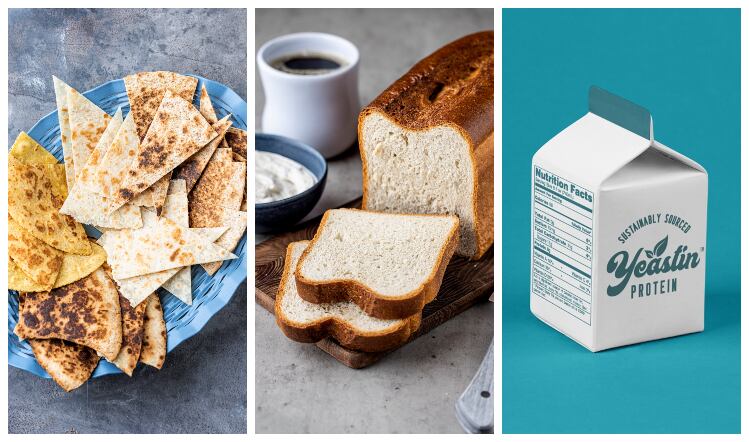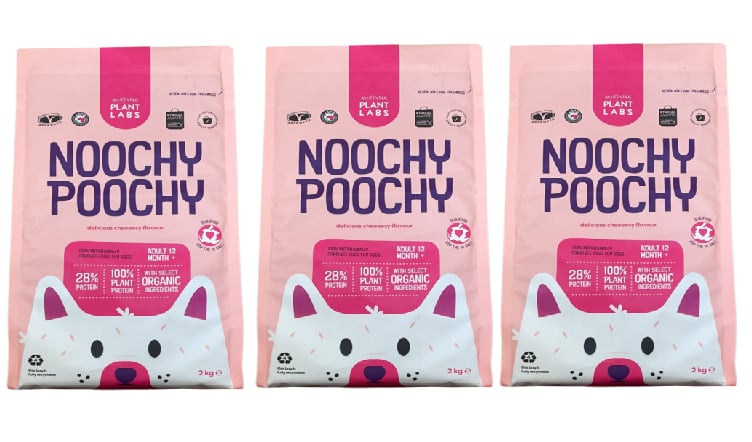Precision fermentation is a technology so disruptive that some pundits believe it has the potential to threaten the very existence of the animal-derived protein industry.
In its 2019 Rethinking Food and Agriculture report, independent thinktank RethinkX projected the collapse of dairy and cattle industries by 2030 as animal meat is replaced by cheaper, higher quality food made from precision fermentation protein.
An extreme prediction perhaps, but there’s no denying fermentation has transformative potential and a huge role to play in building the next generation of proteins, fats and other foods.
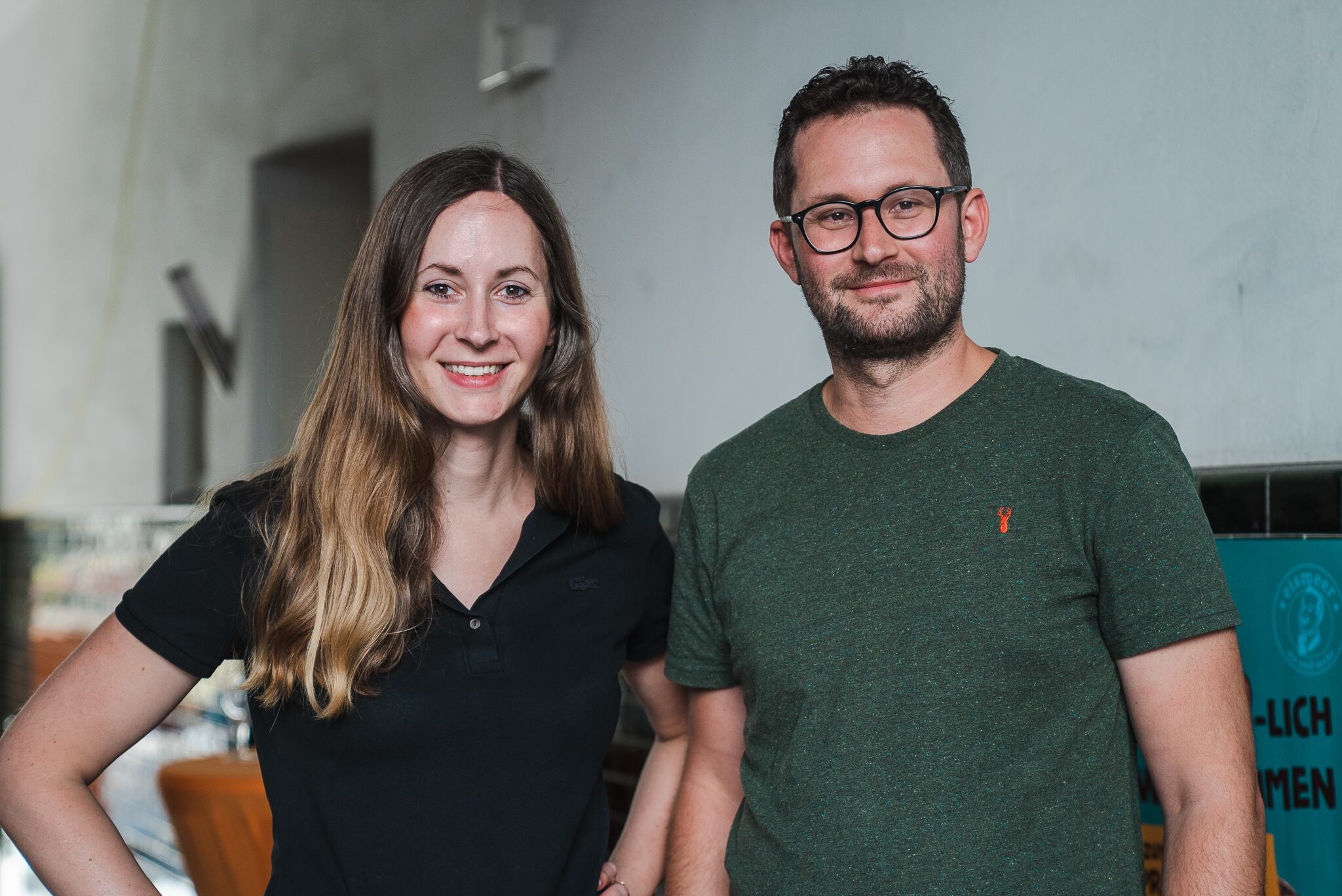
“Enzymes, yeasts and fermentation have always played an important role for mankind, ever since humans started to produce and refine food - think of beer, wine and cheese. Now, the difference is that we are becoming more advanced and better equipped to use these foods and processes in the most efficient way possible, producing healthy and sustainable foods in a way that both has and hasn’t been done before,” says Sara Marquart, who, together with her brother Max, formed Planet A Foods in April 2021.
Precision fermentation is different from regular fermentation in that the micro-organisms that do the work aren’t discovered – they are designed. They are essentially programmed to produce complex organic molecules, such as proteins.
Why precision fermentation?
As Marquart alludes to, this advanced fermentation technology opens up a raft of opportunities for feeding growing populations healthily and sustainably.
Alex Neves, co-founder of Clean Food Group, explains how it enables the development of healthier foods:
“Precision fermentation offers opportunities to produce more healthy food ingredients, mainly because we can pre-determine their nutritional and functional characteristics in a way that is not necessarily the case with traditional agriculture. In addition to this, with precision fermentation, there is no risk of contamination from dangerous pesticides or other chemicals as they are not used in the process,” he says.
As to why it is more sustainable than conventional food production systems, Neves says: “Precision fermentation can be a local and circular solution for food ingredients - using local feedstocks and shortening food miles by placing food production closer to where it is needed. It also concentrates the energy inputs that are usually spread across the whole supply chain into one process which makes it more transparent and easier to manage.”
Another major environmental advantage of foods derived from precision fermentation is that production is, for the first time in the history of humankind, decoupled from land use – something that will become increasingly important as the climate crisis deepens, according to Max Marquart.
“With climate change, fertile land and suitable climates will become scarcer and farmers will have to find new land to plant their crops or feed their cattle. Fermentation can play an important role in nourishing our planet, despite these upcoming challenges,” he says.
Yeast and fungi take centre stage
Yeast and fungi have star roles to play in this new fermentation era, according to Tomas Turner, chief executive and co-founder of Cultivated Biosciences, a Swiss start-up that has succeeded in producing creamy fat from yeast.
“Companies like Cultivated Biosciences and others are making it possible that, in the future, proteins, fats and other nutrients can all come from yeast and fungi.”
He continues: “Yeast, fungi and bacteria can be evolved to produce so many different ingredients that we will be able to recreate most foods we know today with fermentation. Fermentation also has the advantage of being a scalable technology and able to use cheap and sustainable feedstock.”
The first wave of precision fermentation-enabled innovation has focused on alternatives to animal and dairy derived proteins. This has seen Berlin-based Formo and Israeli innovators Imagindairy and Remilk develop dairy analogues and Swedish biotech firm Melt&Marble pioneer a beef fat alternative, whilst across the Atlantic, The Every Company has cracked vegan egg protein.
Beyond protein
With a number of protein projects underway, innovators are now exploring other targets for precision fermentation.
“The past decade was focused on improving the availability of proteins. We believe fermentation also plays an important role in the production of fats as, alongside carbohydrates, they are the most important source of calories for the vast majority of humans,” says Sara Marquart.
Planet A Foods has created two ingredients – a cocoa powder substitute made from fermented oats and a cocoa butter substitute that leverages precision fermentation. For the latter, the Munich-based start-up uses sidestreams from industry to feed an oleaginous yeast strain.
Whilst the cocoa butter substitute is classed as a Novel Food and, as such, requires regulatory approval, the company is already scaling up production of a cocoa-free chocolate substitute – Nocoa – based on the cocoa powder substitute.
“Consumers can currently test our product in Europe via pop-up sales. We are also opening a new production facility in October that will allow us to produce 400kg of cocoa-free chocolate per hour,” says Max Marquart.
“The driver behind Nocoa is to save tons and tons of CO2 from being emitted by the conventional chocolate trade. Cocoa-free chocolate does not lead to deforestation, water waste and forced child labour – all issues associated with cocoa farming and conventional chocolate,” he adds.
Another frontrunner in the precision fermented fats and lipids space is Clean Food Group, with a yeast-based palm oil alternative. The technology, developed over the last eight years by Professor Chris Chuck and his team at the University of Bath, uses food-safe waste as a feedstock for the yeast.
The Clean Food Group expects to have its sustainable palm oil alternative on the market in foods in Europe by 2025.
“The main challenges are around the regulatory pathway and industrial infrastructure but we are happy to be working with partners who have expertise in these areas,” says Neves.
Barriers to market
Indeed, Neves says these two challenges are the major barriers to the commercialisation of precision fermentation derived products.
“In order to be placed onto the market in the UK and Europe, food ingredients produced via precision fermentation will need to go through Novel Foods approval, which can take up to two years,” he says.
“There is also a severe lack of infrastructure associated with scale-up and industrial manufacture, meaning that businesses are faced with potentially long lead times to scale up their technologies,” he adds.
It is hardly surprising, therefore, that to date, no precision fermentation based products have made it onto the open market.
Is gas fermentation the future?
Whilst these innovations represent huge strides versus ten years ago, they are only scratching the surface of what is possible with fermentation.
As Max Marquart puts is: “We have only just started to dip deeper into the sheer endless possibilities of fermentation…we believe there are many untapped opportunities that are still waiting to be discovered in the realm of fermentation.”
Asked how this space might develop in the future, he says: “We are seeing companies working on producing protein powder from CO2 and water, using sunlight. There is the possibility that with the help of microorganisms, we could find a way to even reduce the CO2 in our atmosphere and fight climate change, while nourishing the ever growing global population.”
Tomas Turner agrees that gas fermentation offers interesting potential, saying: “For the long term I am especially excited about the prospects of gas fermentation, although scaling up this technology will take some time.”
Of course, fermentation is not the only route to produce alternative foods from fungi and yeast.
Upcycling spent yeast
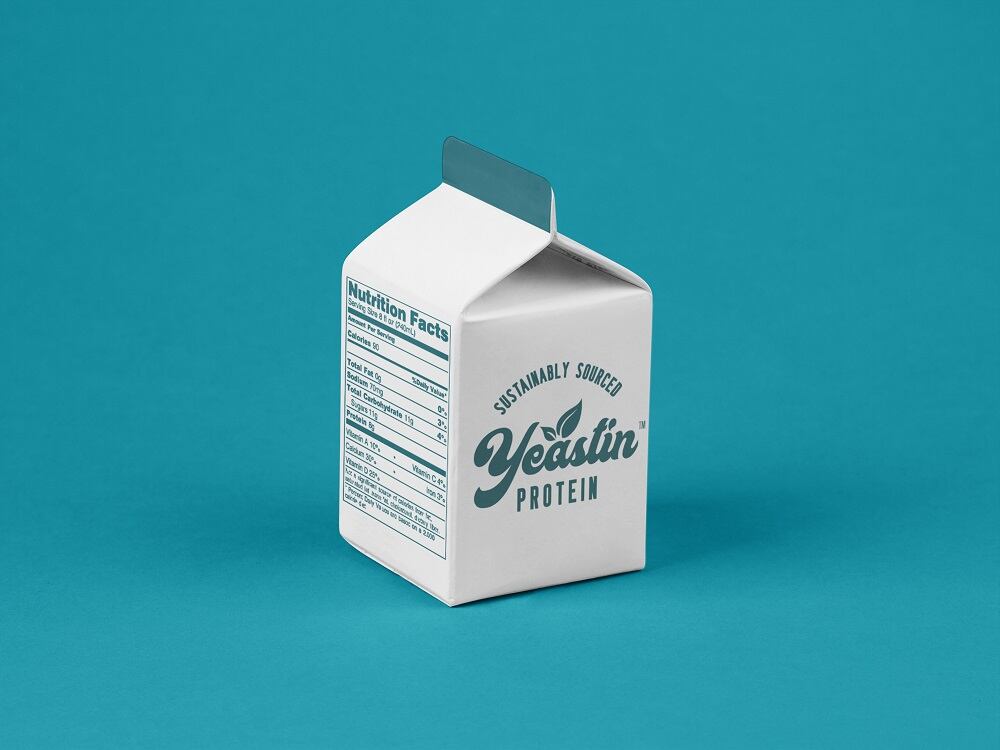
Swiss company Yeastup AG is producing alternative proteins and fibres from spent yeast.
“Around 10,000 metric tons of spent yeast are produced worldwide every day through beer production, with around 90 per cent of this utilised as animal feed. Yeast has enormous nutrient density as it contains high quality protein and fibre. Our goal is to use this directly for the growing protein needs of the world’s ever-growing population,” says chief executive and founder Daniel Gnos.
To this end he says Yeastup has developed a scalable technology that enables multiple nutrients such as proteins and fibres to be extracted simultaneously from spent and propagated yeast.
The company’s core innovation is based on a proprietary combination of process steps for the purification and disruption of yeast cells, filtration and extraction of the various ingredients.
“We extract the protein and fibres in a patent-pending upcycling process,” explains Gnos. “The result is premium quality ingredients that are natural, vegan and virtually neutral in taste.”
Yeastin yeast protein is said to have the nutritional value of an animal protein and an amino acid composition that is comparable to that of whey protein and egg white.
Yeastup is in the process of scaling up to several kilos per batch and is partnering manufacturers of meat analogues and dairy alternatives on product development projects.
Bake to the future with enzymes
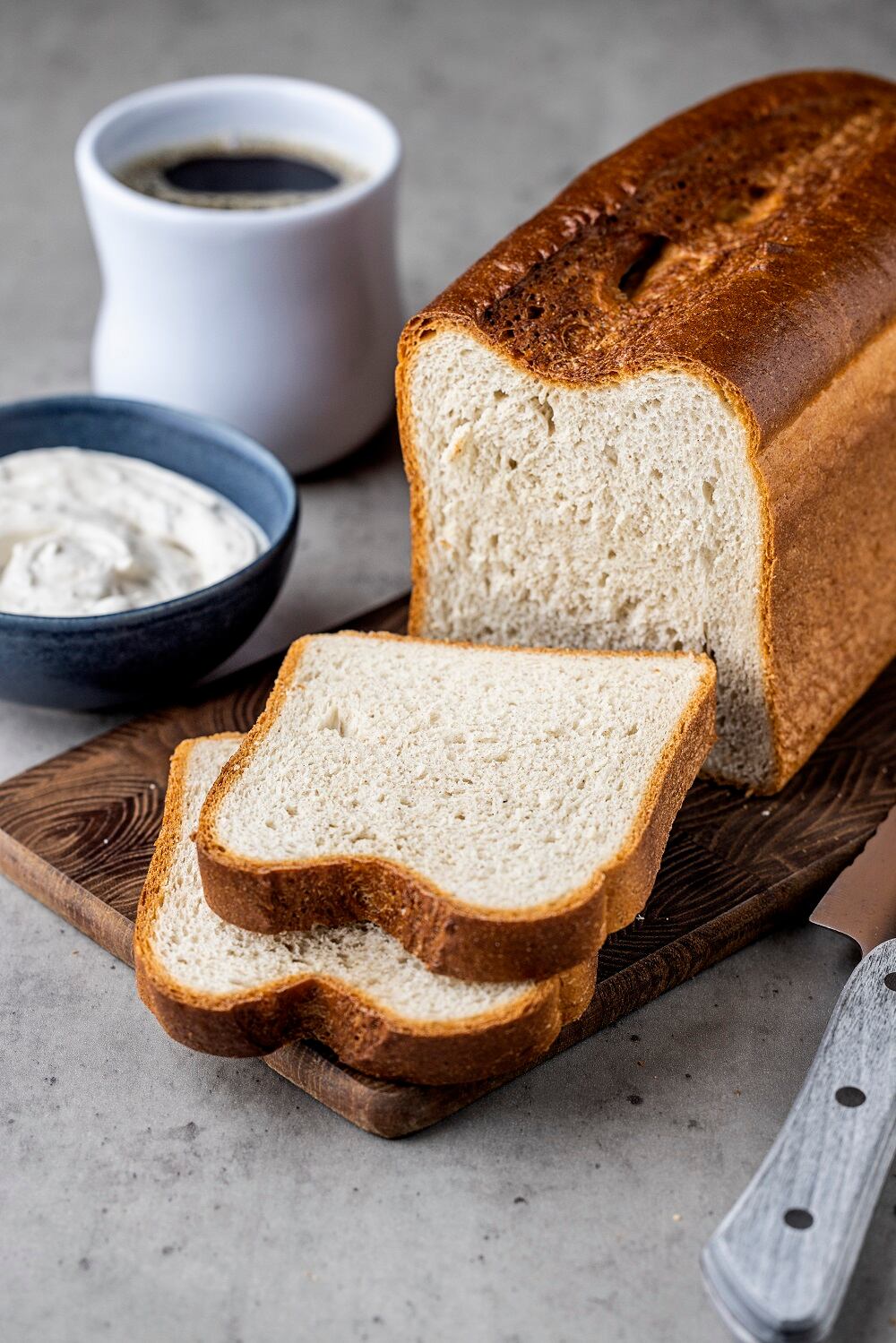
Traditionally used to improve product quality and shelf life, enzymes can help industrial bakers to tackle a number of present day challenges, from developing ‘healthier’ products to reducing recipe cost, coping with raw material shortages and reducing waste, according to IFF.
“In today’s market, we see food enzymes playing beyond product quality, also allowing bakery producers to remove or decrease dependency on undesirable or high cost ingredients, unlocking goodness already in the recipe and fitting with major needs and trends such as consumer friendly labelling and sustainability,” says Aurélie Gammelin, global product manager, bakery enzymes, at IFF.
“On top of that, with current raw material shortages, enzymes can help standardise bread independently of lower wheat quality,” she adds.
Explaining how enzymes can assist sustainability efforts, she says: “Enzymes can help us to produce more with less, utilise local raw materials and optimise processes to reduce energy or water consumption.”
In addition, she says fresh-keeping enzymes can help to reduce food waste along the distribution chain and at a consumer-level by prolonging a product’s shelf life, whilst enzymes that increase stress tolerance result in significantly less waste for commercial bakeries.
One anti-staling enzyme is IFF’s G4 amylase, which is said to keep wheat tortillas fresher for longer by maintaining softness and freshness.
The company’s recently launched ENOVERA 3001 is a dough strengthener that promises to help bakeries overcome challenges such as maintaining consistency across varying conditions, reducing waste and ensuring a clean label without compromising on dough strength, texture and taste.
“Previously, industrial bakers have had to make choices. Today, they can access technology that meets all their needs,” says Gammelin.
At present ENOVERA 3001 is only available in the US but will soon be available in other markets, says IFF.

